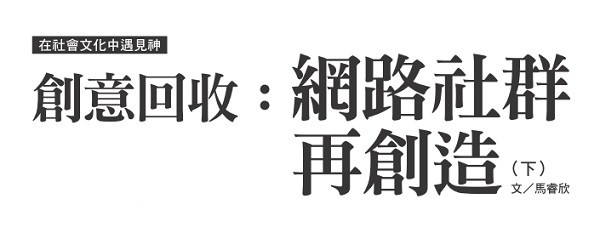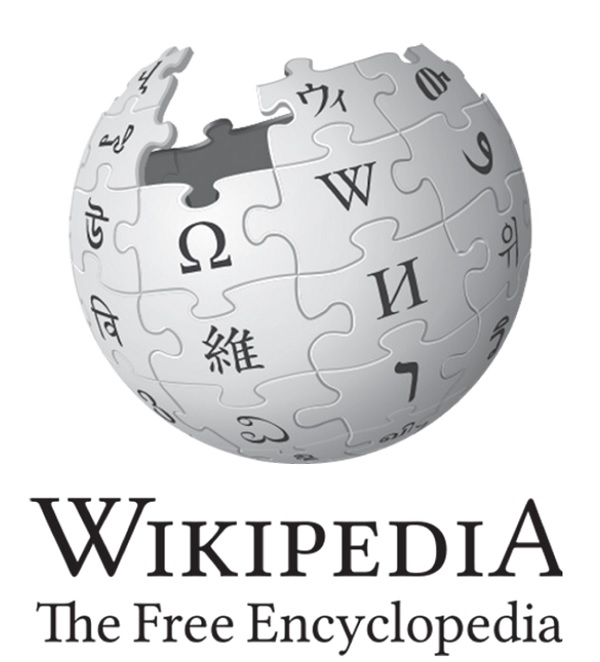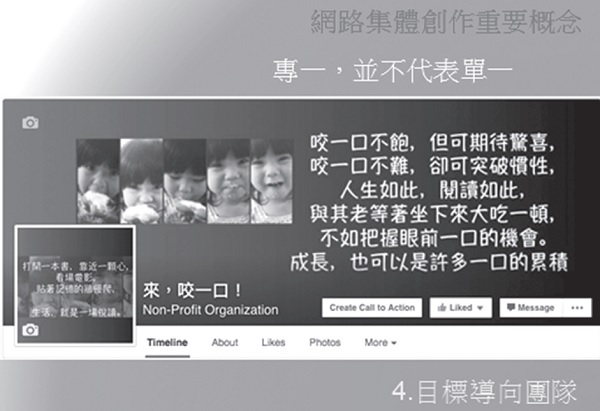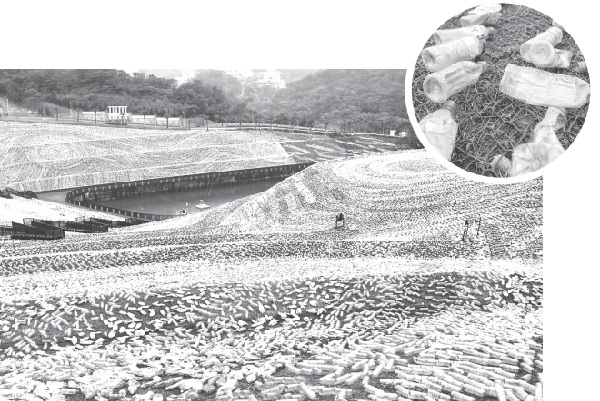Creative recycling: Re-creation of online communities (Part 2)
/ Encountering God in social culture /

Editor's note: It was mentioned in the last issue that in today's Internet age, creativity is like sand, and you can easily grab a handful of it. Let's discuss what creative recycling is and give examples of successful creative recycling operations. This issue continues to explore how Christians can apply the concept of creative recycling in their faith lives.

▲Wikipedia is a re-creation collaborative group that we are very familiar with. Through the Internet platform, people from different places and backgrounds around the world can contribute together to rewrite an encyclopedia that is growing every day.
The world from now on will not be ruled by force, but by creativity. "—Konosuke Matsushita
Creation is a matter for a group of people, and it can be re-created by collecting ideas and re-deconstructing and packaging them.
"I believe that Christian service, whether it is internal church building, spiritual shaping of believers, external evangelism, taking root in culture, influencing society, knowing how to use collective wisdom, collecting collective creativity, and conducting collective creation, are all A very important strategy.”
Wikipedia is a re-creation collaborative group that we are very familiar with. Through the online platform and the supervision of a few people, it allows the world to come from different places and backgrounds, from ordinary people to experts and scholars, to contribute and participate in collection. Revise some existing knowledge and rewrite an encyclopedia that grows every day.
The platform "Dateline" established by "Tianxia Magazine" has gathered 100 new generation authors (continuously increasing) from more than 50 cities around the world. There are no long articles or profound knowledge. They are just you and me in a foreign land. Friends selflessly and naturally share their stories, their experiences, their opinions, and the footprints they left in different corners of the earth starting from Taiwan.
This site as a whole is not new. You can see the shadow of a news website, the smell of a personal blog, and the convenience of a magazine website. However, through good planning and participation in the selection of authors, we can collectively present a platform with global breadth. These authors do not need to gather together for meetings, but they are like working partners who work closely together, taking turns taking readers to different corners to listen to the stories and insights of that place.
There are already so many ideas online that we can reshuffle and reapply. This is the concept of creative recycling. However, this kind of creative recycling is done by one person. If it is not recycled well, it will become copying or plagiarism. A team comes to recycle it together, just like a plastic bottle. When I look at it alone, I see the vase, but when the second person looks at it, I see the pen holder, and when the third person joins in, he is a boat.
There are many ways to establish an online community that can generate collective wisdom. In addition to making good use of online platforms, you also need to understand the convenient tools provided by online technology. The most important thing is to know how to collect good ideas and recycle them.
Creative use of Internet platform cooperation
No matter what kind of online community, some kind of creativity is needed to develop its functions.
We can put our creativity into use on the platform. At present, Internet platforms are constantly being developed and created. Although we cannot invent platforms like Facebook and WeChat, we can use them very creatively.
The blog was originally established as an online diary platform. But do you know how many different ways blogs can be used? Some people use blogs as personal magazines, some churches use blogs as church publications, and some people use blogs as family contact books. Some people use blogs as their own online stores, while others use blogging platforms as classrooms.
Facebook pages were created for business purposes of corporate accounts. A few years ago, when the church wanted to promote daily devotions, I found a few people and boldly recycled this business platform into our spiritual nourishment station. In fact, at the beginning, I was still exploring. I had experience in writing and online writing, but I didn’t have experience in writing a Facebook page. How long should I write? How should I write it? Will there be readers? I'm not even sure. But the tools on the Internet all have one characteristic, that is, they all have limitations, and they all have characteristics that can be discovered and used. The co-writing experience of that year brought some results that I had not expected in advance: some non-Christians were moved after reading it; they discovered potential authors; some Christians also told me that they had never known about Facebook. It can be used with a mission in this way.
I have many years of experience in creating work alone, but it was not until I deliberately learned to use a platform creatively as a group, to find out what we could write, what information we could convey, and how to interact with people that I experienced collaboration. The rich levels are very different from personal actions.

▲Two coffee-loving boys with super scientific minds collectively created a metal bean called Coffee Joulies, which can maintain the optimal temperature of hot drinks at 60 degrees Celsius for five hours.
Act together, recreate together
There is another mode of collective re-creation, which is an extension of collective action.
Two coffee-loving boys with super scientific minds jointly created a metal bean called Coffee Joulies. When placed in coffee or any kind of hot beverage, it can maintain the optimal temperature of the hot beverage at 60 degrees Celsius for up to five years. Hours. They used the online crowdfunding platform Kickstarter to raise funds to buy machines to make Joulies. When their first batch of products was shipped, guess what happened?
Maybe there will be an online group formed at the same time. Basically, it is the old concept of a fan group, discussing how useful the product is, how it can be used, and making some free advertising.
But - if I take over this fan group, rename this group "Coffee Fantasy Group", and let this group of people start to share their stories, experiences, memories about drinking coffee, share knowledge and information about coffee, how about sharing coffee with each other? Brew delicious food...etc. Such a group will generate its own breath of life, and even stimulate product manufacturers to improve their next generation products.
In fact, in the Internet age, every activity can create a new community to extend life. It is not difficult for a group of people to gather because they share a common profound experience at a certain point in time. The difficulty lies in whether the life of the "child" is fed after it is born. A magazine extends an online readership. This readership will disappear after a while if the cows graze. However, if you think about it and run it carefully, a WeChat group established in a Sunday school class can become a community that seriously discusses the truth; the readership group of a magazine/book can be transformed from a fan group into an action-oriented and effective group. Influential online communities.
After Japan's 311 earthquake, Google Japan established the website "Mirai へのキオク" (Memories for the Future), which stated "Let's help you find the memories you lost due to the earthquake!" Inviting netizens to upload photos related to the disaster-stricken areas Or images, allowing earthquake victims to relive their past memories.
This is also an example of collective creation. Netizens not only contribute their own share, but also respond to the share contributed by others. This kind of interaction makes the entire website a very special creative platform. The entire website "Memories for the Future" looks very plain, and what it does is not very innovative. Similar collections, collective postings, and responses are all things that have long existed on the Internet, but this time it is so effective. no. The concept of the project was proposed by the Japanese advertising company Hakuhodo. In just ten months, a total of 52,238 memories were collected and 49,936 submissions of photos or videos were received, winning ADFEST's highest award "The Grand Innova Lotus".
Why does this website become an example of a successful collective creative community?
第一,它的參與方式非常簡單(一分鐘);
第二,參與規則非常清楚明暸;還有,它讓參與的人覺得自己的參與很有意義。
For example, there is an old man on the website who wants to collect photos of "Oku Matsushima Park" because it is a place where he and his grandson often go to play together. The park was damaged by the earthquake, and the old man really wants to see that beautiful park again. . It didn’t take long for people to start posting photos of family trips to Okumatsushima Park, night cherry blossom viewing, or dog walking. When these photos are put together, they become a "street view" derived from users' life experiences. In comparison, it is more real and emotional than the street view photos provided by Google in the past.
For those involved, it is very meaningful that they have jointly picked up the family memories of this grandfather.

▲Japanese Google established the website "Mirai へのキオク" (Memories for the Future), inviting netizens to upload photos or images related to the disaster-stricken areas. By collecting everyone's creations, earthquake victims can relive their past memories.
common interest groups
Fan Fiction is a very special Internet recycling creative group.
Fan fiction refers to secondary creations using elements such as characters, storylines or background settings from original comics, animations, novels, and film and television works.
While there are other issues with this community, it provides an environment where fan readers can become another author for a beloved fictional character. Can you imagine what would happen if Snow White and the dwarf fell in love in the story of Snow White? What would happen if Harry Potter was finally brought to death by his own magic, only to discover that he was not a human at all, but a robot made of high technology?
Also, some popular storybooks cannot wait for the author to write the next episode, but on fan fiction websites, people have already written out the plot development they want for the "next episode".
Because the entire group is a writing space for non-professional authors to use their creative imagination, and the supervision is very loose, some of the works in it are very overwritten, and children are basically not encouraged to read it. But this platform also has some positive effects. For example, there was a girl who never wanted to read, let alone write. When she was eleven or twelve years old, her classmates introduced her to a fan fiction website. She fell in love with reading from there, and later joined Fan fiction writing is encouraged by other readers and authors because posting there. After that, she started borrowing books and loved reading and writing. A few years later, someone took a fancy to the novel she published there, and she became a published author.

▲Fan fiction (English: Fan fiction) is a secondary creation using elements such as characters, storylines or background settings from original comics, animations, novels, and film and television works.
On this platform, these authors and readers communicate and discuss with each other. They are stimulated by original ideas and then recycle and recreate them to stimulate the reinvention of others. The ideas of authors and readers stimulate ideas and encourage each other. A few years ago, my fifteen or sixteen-year-old daughter suddenly came to me and confessed, saying, "Mom, I'm sorry, I want to admit my mistake. I have been on a fan fiction website for a while, and I still publish my own novels on it." Yes. For her, it was her first experience joining a "writing team". She told me that it feels really good to have readers!
Today's Christian online communities generally look a lot like online fellowships, small groups, or small families. But in fact, the function of the fellowship is only part of it, it is a foundation. It is definitely not enough that our group of people have a good relationship, and it does not matter what we do.
The entire group must have a clear focus and similar interests or enthusiasm. Through mutual collision and communication, sharing resources and inputting new ideas, participants can generate greater enthusiasm and enthusiasm for the common focus of this group. Persist and grow. A social group for new mothers can only babble about motherhood, or can it be very creative and produce the most exciting drama on this stage?
goal oriented team
Another form is a collective creative group formed under a common goal and plan. The actual writing team of "Chuangwen" is an example.
When the "Here, take a bite" team was established, the idea was to promote reading and use words to promote it online. At that time, Teacher Mo Fei, the creative director, stipulated that each of the co-workers should read twelve books a year. Although I heard some sighs There was a sound of bargaining, but I thought to myself that it would be a pity for literati to just read and go in and out. Everyone has different experiences and perceptions of reading. To promote reading, what else can be better than going online to share what you have learned from books aloud with others? What is a more direct way to get nutrients?
Of course, for me, it’s still too uncreative to ask some people to go online to share readings. I think the benefits of a collective, in addition to large numbers of people, can also be hierarchical. What can a group of us produce by typing on keyboards and surfing the Internet? This is what I have been seeking and thinking about since the beginning.
For example, single-mindedness does not mean singleness. This is the concept I think we need to have when talking about online collective creation.
Soon, I saw that these people could hone their writing skills in the process of promoting reading; in the process of honing their writing skills, they could also understand the power of new online media and learn to use it; in the process of understanding the Internet In the process of new media, give yourself the opportunity to broaden your tolerance; finally, in the process of being broadened, you can once again align yourself with the new things God wants to do through words.
Later, the participants became a practical team that created articles to train writing. Their single-minded goal was to train writing, but the meaning was multi-layered. While using words online to influence Facebook culture and convey information, they also practiced writing and making decisions. servant. This is what I said, single-minded, but not single.
Currently, the writing team is shepherding each other's writing, recycling ideas from some websites such as "Dateline", Tribune, etc., and continuing to operate the "Come, Take a Bite" platform with a mission. I hope that in addition to encouraging each other, they can inspire each other to In addition to new ideas, don’t forget to continue to collect some good ideas online, recycle them, and use them on this platform.
Five elements of successful online communities:
1. Dissimilarity
Participants must be diverse enough. The thinking mode is similar to the knowledge level. Although it can save a lot of effort, it is not an advantage for a collective creative group. Because a group of people who are too similar are crowded into the same well, and the sky they see is as big as a palm.
"Here, take a bite." At the beginning, one member felt particularly uncomfortable and something was wrong. Because among a group of sisters who are emotional, good at telling stories, and interested in relationship writing, she stands out because she likes politics and history, values theoretical ideas, and has a doctoral background. Especially on a reading platform like Facebook, which is relatively loose and where readers only eat snacks in one bite or two, her expertise, interests, and writing habits are quite prominent in the team. It cannot be said that she balanced the team, but that she made the collective creative team more complete.
Asking questions is the most important way to promote collective creation. Only different people can bring together different questions and bring rich aspects to group creation.

▲Specialization does not mean singleness. This is the concept that must be understood when talking about collective creation on the Internet.
2. Contribution
Every participant has the opportunity to contribute. In groups that use the Internet as a platform, it is easy for observers to lurk there. But in fact, when talking about collective creation, a certain level of contribution represents real participation. How to give everyone the opportunity to contribute is one of the key points to consider when initially planning.
3. Connectivity
There must be appropriate technological tools to connect each other.
Literati gather in coffee shops. The coffee shop itself is a tool for connection. This article mainly talks about collective creation on the Internet. The connection tools provided are of course Internet-related tools, such as mobile phones, tablets, traditional computers, etc.
If most of the participants in this group are older people, have presbyopia, and are good at using mobile phones with only one finger, then the tool to be considered for connection may be a traditional computer with a voice operation function.
But if you are targeting Millennials, mobile phones must be more convenient.
Come again, what are you going to do? For groups that need to talk in depth, mobile phones are not that easy to use. It would be better to have a video.
In addition to platforms and tools, software is also important. Website or app? What good software can I use?
4. Value
Having a common creative goal for what you are doing will create a common sense of value, making everyone feel that it is worthwhile to stay in such a group.
5. Architectural
The group must have its own structure, which includes good plans, practical goals, and rules. Aim at the vision, let participants share their dreams, set goals, and then plan specific ways to implement it. Finally, some rules must be set. A community with boundaries is a community with direction and goals.
I myself can only partially agree with the statement that "easy chatting can stimulate creativity". For Oxford Inklings or other mature and self-disciplined writers, or some spiritual leaders who regularly gather together to drink coffee and chat, they can For successful communities that are helpful to each other's growth, they themselves have set their own internal boundaries.
Visions and goals do not need to be limited by external structures; however, when we stare at these successful communities, we should not forget that there are many communities on the Internet that are abandoned tombs, which will disappear after a while. exist. It is common for young people to join more than two dozen WeChat groups on their mobile phones, but ask them what significance those groups have? Most of them think it is dispensable.

▲If you make good use of collective creativity, you can turn decay into magic. The picture shows the Yongheng Cultural and Creative Park using 4 million PET bottles to pave the hills with Van Gogh’s famous paintings. (Photo source: Photography by reporter You Minghuang, provided by Yongheng Cultural and Creative Industries)
in conclusion
Over the years I have repeatedly talked about using the Internet to exert influence and spread the message of the gospel. People often tell me that they have tried WeChat groups and Line groups. Apart from reposting articles, discussions are difficult. Every time they start talking, they get sidetracked and they give up later.
Yes, online communities are nothing new. Christian online communities can also be found everywhere. But most online communities have not produced collective wisdom and creativity.
Therefore, the establishment of community is very important. In addition to establishing a literary and creative community, there are also pastoral communities, pre-work communities, resource communities, and intermediary communities. Including the consumer community and participant community established by each organization, every community is a recreated organism.
I hate to say: "We are online, so we exist", but for the younger generation, this is indeed their situation. Young people can regularly go to church and join a group, but what really brings them together is the community that not only meets regularly at church, but can also live together online, on mobile phones, and at any time.
We need to be more creative in rebuilding and using online communities so that they can go beyond the functions of "gathering a group of people" and "maintaining contact" or "talking" and "exchanging stickers". Entering into a situation where collective creation, collective wisdom and collective strength are generated.
And this transformation itself is an art recycling effort. In other words, from now on, who can recycle communities and turn them into collaborative groups, just like a bunch of plastic bottles that can be sold for a little money, but with some creativity and structure, Give them a purpose and meaning for their existence, and perhaps they can be piled up into a ship that can carry the mission and sail to the distance.
 Author profile
Author profile
Ma Ruixin is a writer. Her articles have appeared in newspapers and magazines. She was a columnist for "Cosmic Light Magazine" and "True Love Magazine" and is currently a writer for "Beijing Foundation Magazine". At the same time, I have been running an online blog for many years and have a Facebook page. He is the author of the books "The Footsteps of a Wanderer", "Managing the Family and Mind", and "The Wisdom of Discipline". "Private School Madam" blog, "Give me your sincerity" blog, "It's You" blog, and "Grab Happiness" Facebook page.
